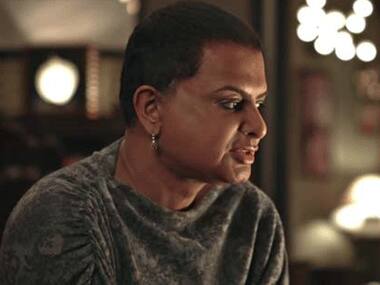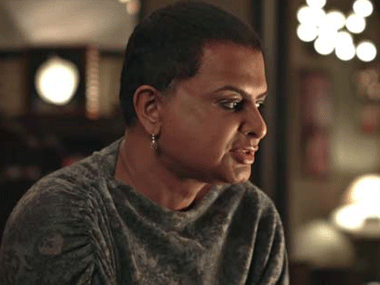by Premankur Biswas Even though it’s a phone conversation and Raima Sen is trying her best to sound composed, it’s obvious that the actor has been crying. Evidently, “Ritu Mama”, as Sen calls filmmaker Rituparno Ghosh who was her mentor, meant a lot to the actor. “He was like a family member to us and we can’t reconcile to the fact that he is gone,” she says. “He shaped my career. I would seek his advice about the kind of films I should do, the way I should present myself, everything. He would scold me, discipline me." Those who have seen Ghosh interact with his actors and colleagues, even in public spaces like chat shows and interviews, will relate to Sen. Ghosh came across like a stern but kind mother figure to those around him; chiding them for their mistakes and then pointing out their achievements with a sense of pride. “He knew how to treat his actors. During Abohomaan we had many arguments. At times he would sulk, at times I would act up, but eventually we would sort things out. Only a great filmmaker can build that kind of rapport with his actors,” says Ananya Chatterjee, who won a National Award for best actress for Ghosh’s aforementioned film. [caption id=“attachment_829823” align=“alignleft” width=“380”]
 Rituparno Ghosh in a still from Chitrangada. IBN Live.[/caption] If there was a time when he was considered to be an outsider in the Bengali film industry – and he was precisely that when he chose to become a filmmaker – it is long forgotten. “There is no denying the fact that Ghosh brought middle class Bengalis to cinema halls. His sensibilities, his stories, touched their hearts. For that the industry owes him a lot,” says filmmaker Goutam Ghose. Only Rituparno Ghosh could make the reigning superstar of Tollywood, Prosenjit, take a month out of from his busy schedule to grow a beard for his film like he did for Khela (2008). “I have great respect for Ritu," Prosenjit had said in an earlier interview. “As an actor, I feel privileged to do his bidding, not because I am in awe of him, but because I know he is a team player and will never make me look bad.” Ghosh brought a brought together a consortium of technicians and actors who changed the very idiom of Bengali cinema. “There is a distinct difference in pre-Rituparno Bengali film and post-Rituparno Bengali film,” says music director Debjyoti Mishra another Ghosh discovery. “He gave breaks to editors like Arghyakamal Mitra, cinematographers like Avik Mukhopadhyay and many more. These people then changed the way Tollywood functioned.” Ghosh counted the likes of director and actor Aparna Sen among his friends and it is widely believed that they would seek creative advice from each other. “Yes its true, I would always show him my scripts before filming and he would do the same,” says a visibly moved Aparna Sen. When he cast Aishwarya Rai in Chokher Bali and then started casting Bollywood stars in his films (like Ajay Devgn and Rai in Raincoat; Abhishek Bachchan in Antarmahal; Amitabh Bachchan, Arjun Rampal and Priety Zinta in The Last Lear; and Bipasha Basu in Sob Charitra Kalponik), many feared Tollywood would lose him to the obvious charms of the Bombay film industry. But Ghosh was a Bengal’s boy. His latest films, like Abohomaan , Noukadubi and Chitrangada, have all had actors drawn mostly from Tollywood. Deepanker De, who starred in Abohomaan and his last released film Chitrangada, feels he was deeply committed to promote the local film industry. “He gave me a role of a lifetime in Abohomaan,” says De. “He gave Ananya Chatterjee a wonderful break too. He was the creative director of a number of Bengali serials where he was actively promoting a number of young talents. He had a lot to give to this world. It’s unfortunate that someone so young and talented had to leave us so early,” says De. Premankur Biswas is a freelance journalist and writer. You can reach him at premankur.biswas@gmail.com
Rituparno Ghosh in a still from Chitrangada. IBN Live.[/caption] If there was a time when he was considered to be an outsider in the Bengali film industry – and he was precisely that when he chose to become a filmmaker – it is long forgotten. “There is no denying the fact that Ghosh brought middle class Bengalis to cinema halls. His sensibilities, his stories, touched their hearts. For that the industry owes him a lot,” says filmmaker Goutam Ghose. Only Rituparno Ghosh could make the reigning superstar of Tollywood, Prosenjit, take a month out of from his busy schedule to grow a beard for his film like he did for Khela (2008). “I have great respect for Ritu," Prosenjit had said in an earlier interview. “As an actor, I feel privileged to do his bidding, not because I am in awe of him, but because I know he is a team player and will never make me look bad.” Ghosh brought a brought together a consortium of technicians and actors who changed the very idiom of Bengali cinema. “There is a distinct difference in pre-Rituparno Bengali film and post-Rituparno Bengali film,” says music director Debjyoti Mishra another Ghosh discovery. “He gave breaks to editors like Arghyakamal Mitra, cinematographers like Avik Mukhopadhyay and many more. These people then changed the way Tollywood functioned.” Ghosh counted the likes of director and actor Aparna Sen among his friends and it is widely believed that they would seek creative advice from each other. “Yes its true, I would always show him my scripts before filming and he would do the same,” says a visibly moved Aparna Sen. When he cast Aishwarya Rai in Chokher Bali and then started casting Bollywood stars in his films (like Ajay Devgn and Rai in Raincoat; Abhishek Bachchan in Antarmahal; Amitabh Bachchan, Arjun Rampal and Priety Zinta in The Last Lear; and Bipasha Basu in Sob Charitra Kalponik), many feared Tollywood would lose him to the obvious charms of the Bombay film industry. But Ghosh was a Bengal’s boy. His latest films, like Abohomaan , Noukadubi and Chitrangada, have all had actors drawn mostly from Tollywood. Deepanker De, who starred in Abohomaan and his last released film Chitrangada, feels he was deeply committed to promote the local film industry. “He gave me a role of a lifetime in Abohomaan,” says De. “He gave Ananya Chatterjee a wonderful break too. He was the creative director of a number of Bengali serials where he was actively promoting a number of young talents. He had a lot to give to this world. It’s unfortunate that someone so young and talented had to leave us so early,” says De. Premankur Biswas is a freelance journalist and writer. You can reach him at premankur.biswas@gmail.com
Why Rituparno Ghosh was a hero in Tollywood
FP Archives
• May 31, 2013, 10:06:00 IST
Those who have seen Ghosh interact with his actors and colleagues, even in public spaces like chat shows and interviews, will relate to Sen. Ghosh came across like a stern but kind mother figure to those around him; chiding them for their mistakes and then pointing out their achievements with a sense of pride.
Advertisement
)